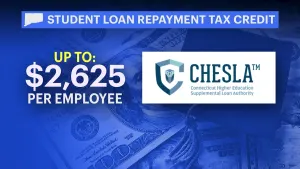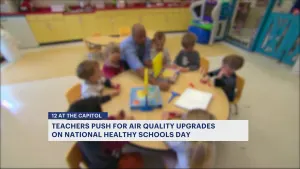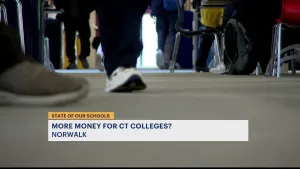More Stories
As educators work to reimagine the
education system, we are taking a look at how it's going this year.
Fifth, sixth and seventh graders, who were
in second grade and above when the pandemic hit, are making much better
progress in reading. If their current pace of learning continues, they'll be on
track to recover in two or three years.
However, many are falling behind in middle school math.
Nationwide, students who started middle school early in the pandemic lost more
ground in math than any other group and don't appear to be recovering.
Test data paints a dire picture - educational
assessment nonprofit NWEA found that seventh and eighth graders' scores on its
math assessments fell in 2022, the only group of kids for whom that was true.
NWEA researchers estimate it will take these students at least five years to
catch up to where they would have been without the pandemic.
On the 2022 National Assessment of Educational
Progress, average eighth grade math scores declined eight points from 2019,
hitting a level not seen since the early 2000s.
Meanwhile, early adolescence is also a time of rapid cognitive change, when kids need social interactions with peers and teachers to learn.
Meanwhile, early adolescence is also a time of rapid cognitive change, when kids need social interactions with peers and teachers to learn.
Artificial intelligence has come into play and
many schools are trying to adapt to prepare students for a future filled with
all kinds of tools. Could it unlock student creativity, offer personalized
tutoring and better prepare students to work alongside A.I. systems as
adults?
News 12’s Elizabeth Hashagen is joined by a panel
of experts including Dr. Robert R. Zywicki, a New Jersey school
superintendent, and Ashley Bencan, chief operations officer for New Jersey
Tutoring Corps and co-founder of ConnectED Workforce.
More from News 12
0:37

Norwalk Public Schools awarded $21.5 million for heating and cooling systems
1:44

Westport school board meets to address possibly banning students from having cellphones
2:00

Gov. Lamont wants to help your boss pay your student loans. Why it won’t cost taxpayers extra
0:49

CT teachers push for air quality upgrades
2:12

CT lawmakers back more money for colleges. But how much is a mystery
0:39
